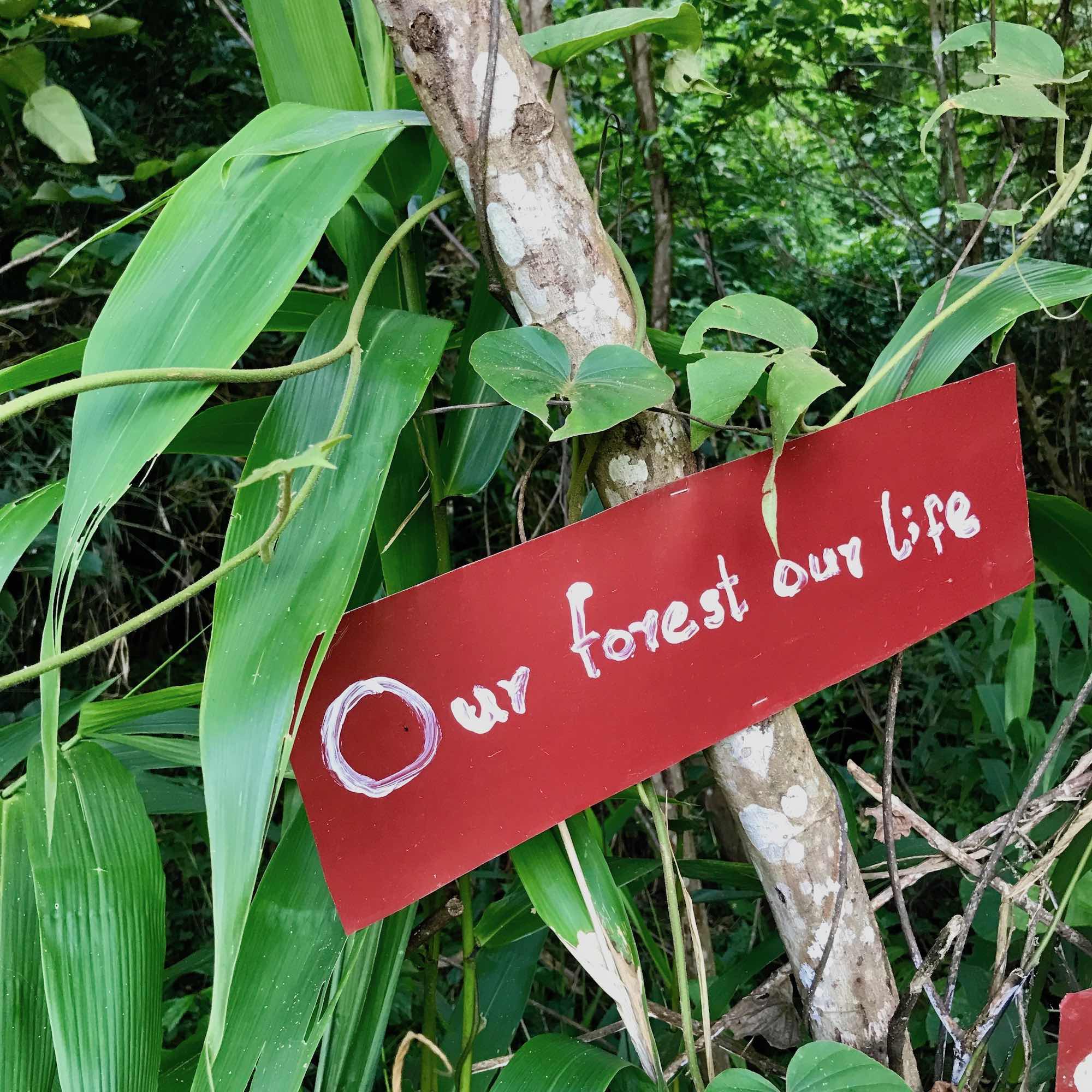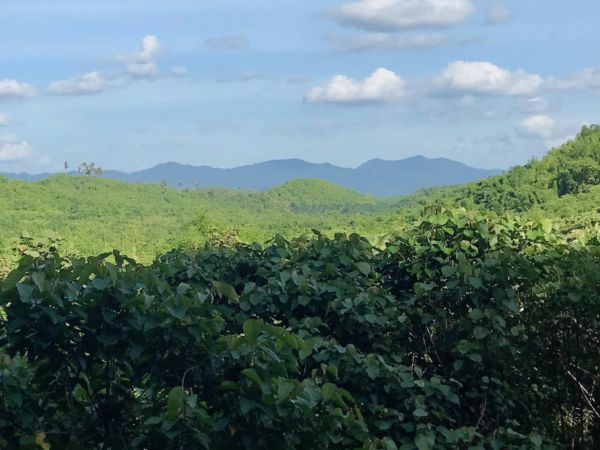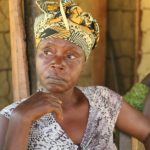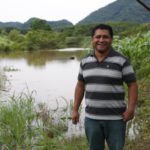Climate Finance
-
Overview
Given the urgency of global financial flows needed to address and mitigate the climate crisis, climate finance needs to hit its mark. As the range of actors focused on climate finance expands — from private ESG investment to development finance — Accountability Counsel is working to strengthen accountability of these financial flows to ensure that climate solutions achieve climate and environmental goals and respect human rights.
The Issue
Accountability Counsel’s work has identified climate finance that unintentionally undermines public and private investors’ climate goals, while also impeding the environmental and human rights of local people.
Our cases and research show that issues such as lack of project information, and failure to consult with and include local people in the design and decision-making around climate investments that impact them, can have disastrous effects. These include projects that:
- are inadvertently set up to facilitate corruption that undermines climate goals (while leaving out local stakeholders that can support community-level investment in climate finance projects),
- fail to conduct social and environmental due diligence holistically enough to capture negative climate and social impacts of investments (e.g. harm to local people who in turn require use of natural resources in a more harmful way than the pre-project status), and
- fail to capture local knowledge about environmental and social harm that will result from project design, while failing to invest in local communities’ own climate solutions.
Business and Human Rights Research Centre’s Renewable Energy and Human Rights Benchmark confirms the alarming shortcomings of many of the world’s largest renewables companies in protecting the rights of affected communities and workers.
The Opportunity
In our Communities program, we support people to use existing accountability tools to raise issues of mismanagement, unintended impacts, or abuse related to climate finance. These accountability offices help identify where harm prevention and remedy is needed through investigations and dispute resolution.
These cases also point to systems level issues in climate finance that require our Policy team’s attention, often through advocacy for changed policy and practice.
Accountability offices are a good governance tool for boards of directors and other leaders at financial institutions to hear directly from communities closest to project impacts. Our Research team’s tools help decision makers see where and how they can shift policy and practice through exposing trends in accountability office data.
For private actors and emerging market public entities that are investing in renewable energy and other climate infrastructure without public co-financing, few avenues for independent community feedback currently exist. We advocate for strong accountability systems to ensure that climate goals are met without violating the rights of local communities and undermining the ‘just transition’ to a low-carbon future.
Public and private investors can use available data to improve climate finance outcomes. The Accountability Console, our public database of all complaints ever filed with accountability offices, can be used to identify issues as part of standard due diligence. As the database grows, sector specific climate finance data trends will come into focus.
-
Our Advocacy
Advocating that Climate Finance Embed Safeguards and Accountability to Meet its Mark
Accountability Counsel’s Policy program works to engage at the decision-making level to shift the safeguard and accountability systems used for climate finance and investment. Without standards that require a focus on social and environmental due diligence and accountability, both public- and private-sector actors in the climate finance space risk harm to local communities, the environment, and are in danger of undermining their own climate investment goals.
Our advocacy has influenced the Green Climate Fund, the climate finance activities of the UNDP, the climate finance instrument of the German Ministry of the Environment (IKI), and we are engaging with private-sector climate investors to close accountability gaps in impact investing. The UN Special Rapporteur on the Right to Development also reflected our call for accountability in climate finance in his brief, Climate Action and the Right to Development: a Participatory Approach.
Recognizing the additional complications to global climate challenges imposed by the COVID-19 pandemic and its economic consequences, we released a public statement to urge prioritizing human rights and community centered development in advance of the first Finance in Common Summit, which is a convention for all public development banks to coordinate around sustainable recovery and development objectives. We called on all public development banks to embrace independent grievance and accountability mechanisms as tools to ensure that their investments do not undermine human rights.
Myanmar: Case Study of Community-Led Action

A top-down conservation project in Myanmar meant to protect forests instead risked mass deforestation
Accountability Counsel supports communities speaking out about impacts of climate finance that are misused and may contribute to climate change rather than help address it.
In our case in Myanmar, we see top-down climate finance that failed to incorporate the knowledge of Indigenous communities who have conserved their ecosystem for generations. As a result, a project meant to protect 1.4 million hectares of biodiverse forests instead risks worsening climate change by setting up a system ripe for illegal logging and deforestation. Indigenous communities are working to redesign this harmful project, financed by United Nations Development Programme (UNDP) Myanmar, through a complaint strategy tied to UNDP’s accountability office. The project is currently suspended as the UNDP’s accountability office responds to this complaint. Accountability Counsel is supporting the Conservation Alliance Tanawthari (CAT) through the complaint process and working to amplify their vision of an alternative model of Indigenous-led conservation through their proposal, Landscape of Life.
The complaint process focuses on non-compliance with UNDP’s own policy, as well as the policy of the Global Environment Facility (GEF), one of the project funders. But for this community-driven complaint process, policy-makers at UNDP, GEF, and other institutions and investors that engage in climate finance would not have been aware of these impacts, which are not unique. These institutions can now act on this information about these unintended climate consequences to prevent misuse and harm, not only with this project, but in all climate investments going forward.
-
Documents
Key Documents by Release Date
July 2022 – Accountability Counsel submitted comments on the IFC’s draft Biodiversity Finance Reference Guide, calling on the guidance to require investors and project implementers to establish accountability mechanisms.
November 2021 – Accountability Counsel participated in a consultation session and submitted written comments on the draft procedures for the new accountability mechanism of the Internationale Klimaschutzinitiative (IKI), a climate finance instrument of the German Ministry of the Environment.
October 2021 – Ahead of the 2021 United Nations Climate Change Conference (COP 26), the UN Special Rapporteur on the Right to Development, releases Climate Action and the Right to Development: a Participatory Approach. The brief includes a recommendation a strong call for accountability in the case of human rights abuses, which reflects recommendations to UNSR that we submitted earlier in the year.
March 2021 – AC submits comments for the UN Special Rapporteur on the Right to Development’s thematic report on climate finance, calling for financiers to ensure that communities have avenues to raise concerns about impacts from climate adaptation and mitigation projects.
Nov 2020 – Accountability Counsel releases a public statement urging a focus on human rights and accountability at the first global summit for coordinating public development bank response to the COVID-19 and global climate crises.




